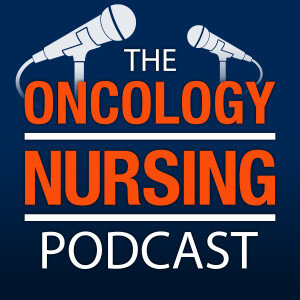
“Cultural competence is about being able to deliver care while respecting and valuing the differences people bring with them to the table. Did we consider their uniqueness? Have we done our best to care for them in a way that’s individualized?” Erica Fischer-Cartlidge, DNP, RN, AOCNS®, EBP-C, chief clinical officer at ONS, told Jaime Weimer, MSN, RN, AGCNS-BC, AOCNS®, oncology clinical specialist at ONS, during a conversation about cultural considerations that can arise in cancer care and how oncology nurses can deliver culturally competent care. You can earn free NCPD contact hours after listening to this episode and completing the evaluation linked below.
Music Credit: “Fireflies and Stardust” by Kevin MacLeod
Licensed under Creative Commons by Attribution 3.0
Earn 0.5 contact hours of nursing continuing professional development (NCPD) by listening to the full recording and completing an evaluation at myoutcomes.ons.org by January 20, 2025. The planners and faculty for this episode have no relevant financial relationships with ineligible companies to disclose. ONS is accredited as a provider of NCPD by the American Nurses Credentialing Center’s Commission on Accreditation.
Learning outcome: The learner will report an increase in knowledge related to delivering culturally competent care.
Episode Notes
- Complete this evaluation for free NCPD.
- Oncology Nursing Podcast episodes:
- Episode 235: Self-Advocacy Skills for Patients
- Episode 75: LGBTQ+ Patients Face Significant Barriers to Successful Cancer Care
- Episode 63: Why Your Words Matter to Patients With Cancer
- ONS Voice articles:
- Religious Fasting During Cancer Treatment
- Prevent Implicit Bias in Patient Care With These Cultural Conversation Starters
- Cultural Humility Is a Nursing Clinical Competency
- Cultivate Cultural Humility in Yourself and Your Practice
- Clinical Journal of Oncology Nursing articles:
- Addressing Cultural Competency: Lesbian, Gay, Bisexual, Transgender, and Queer Cancer Care
- Cultural Humility: Retraining and Retooling Nurses to Provide Equitable Cancer Care
- Providing Culturally Appropriate Care to American Muslims With Cancer
- Oncology Nursing Forum article: Cultural Competency in Nursing Research
- National Center on Disability and Journalism Disability Language Style Guide
- Journal of Clinical Nursing article: Nurse Bias and Nursing Care Disparities Related to Patient Characteristics: A Scoping Review of the Quantitative and Qualitative Evidence
- Lancet Oncology series: Disabilities and Cancer
- Video: Inequality in Cancer Care for People With a Disability
To discuss the information in this episode with other oncology nurses, visit the ONS Communities.
To provide feedback or otherwise reach ONS about the podcast, email pubONSVoice@ons.org.
Highlights From Today’s Episode
“Most specifically, cultural competence is about being able to deliver care while respecting and valuing the differences people bring with them to the table.” Timestamp (TS) 02:00
“We can never be fully culturally competent because people are always evolving and changing based on new experiences in their life. We should always be questioning and asking and seeking to learn, not just going to obtain a set information of knowledge and then applying that to all the people in that group.” TS 04:00
“Every situation is different, but it always starts with having an open dialogue with your patients. It’s important to not make assumptions about their life or their behaviors. No one is ever expected to know everything, but taking the time to ask is the first step. I think then the next thing is to read about different groups so you’re more aware of differences and know what types of questions to ask.” TS 06:08
“You have a patient who wants to fast for Yom Kippur but they’re on chemotherapy. Do you automatically say no? If a patient is active in their church and requesting to have a prayer group hold their weekly meeting in his room while he’s admitted but the visitor policy is only two people at a time, do you say no? The answer to these situations isn’t always that we say yes and the rule changes, but it’s more about reflecting on if we actively tried to meet their needs the best way we can. Did we consider their uniqueness? Have we done our best to care for them in a way that’s individualized?” TS 10:37
More Episodes
 2024-05-17
2024-05-17
 2024-03-29
2024-03-29
Create your
podcast in
minutes
- Full-featured podcast site
- Unlimited storage and bandwidth
- Comprehensive podcast stats
- Distribute to Apple Podcasts, Spotify, and more
- Make money with your podcast
It is Free
- Privacy Policy
- Cookie Policy
- Terms of Use
- Consent Preferences
- Copyright © 2015-2024 Podbean.com





